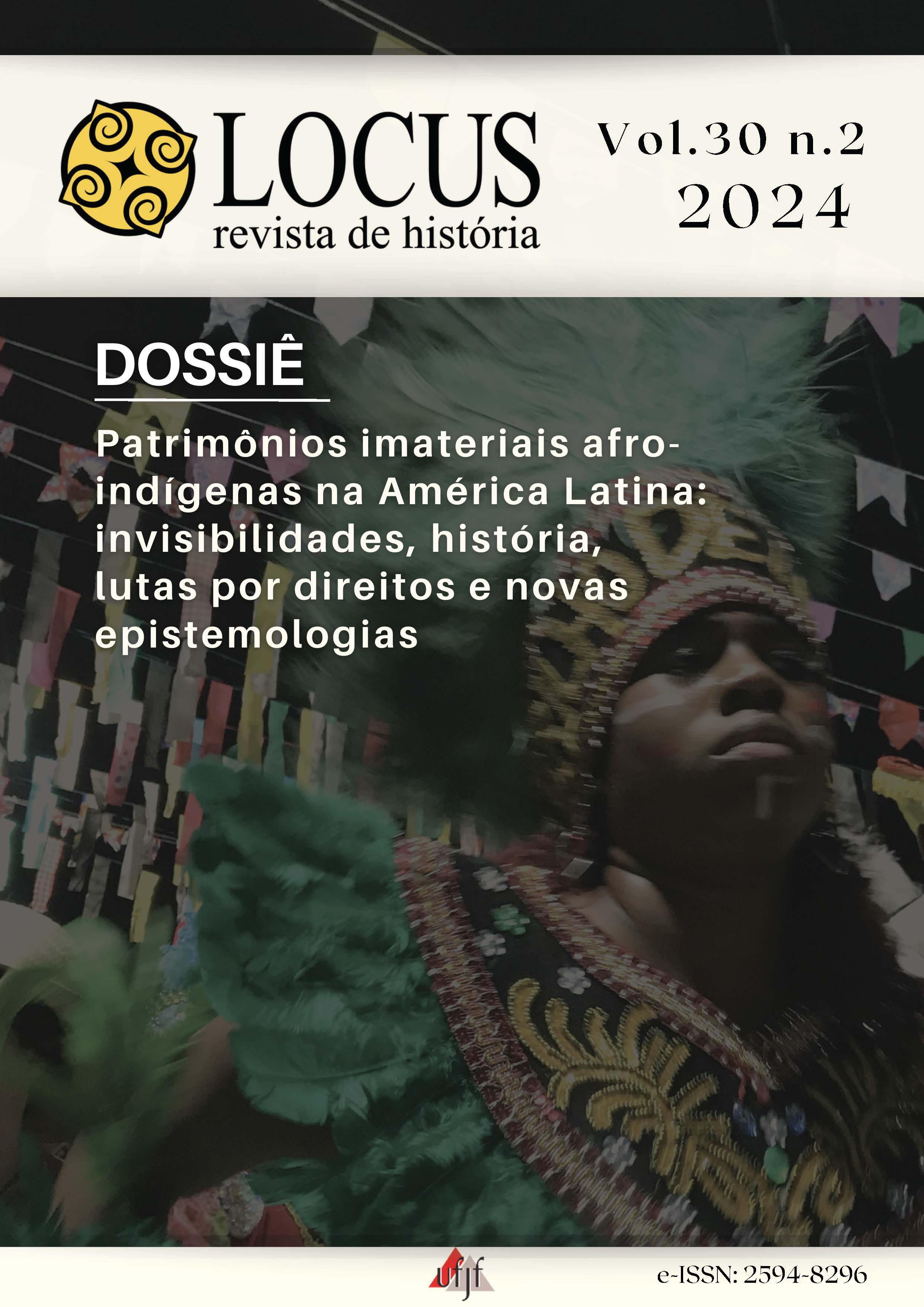The orphanhoods of intangible cultural heritage: policies, heritageization processes and the recognitions and rights of Afro-ndant communities in Latin America.desce

Published 2025-02-02
Keywords
- intangible heritage,
- recognitions,
- rights,
- afro-descendants
How to Cite
Copyright (c) 2025 Monica Beatriz Lacarrieu

This work is licensed under a Creative Commons Attribution 4.0 International License.
Abstract
This article aspires to think and rethink about the black presence (to a lesser extent the indigenous) in terms of intangible heritage. In this sense, we are interested in reflecting on this issue from the legitima tion of intangible heritage in the logic that UNESCO implemented from the Convention for the Safeguarding of this Heritage (2003), considering the contexts and local historical processes linked to Latin America ( particularly the southern region). That is why o ur starting point will be heritage, in order to understand to what extent this area contributes to strengthening recognition and struggles for rights.
Our objective is built between the past and present of the manifestations and communities and their complex relationship with the public policies of heritage, particularly in Argentina and Uruguay. Ancestry, as well as academic thoughts and community knowledge linked to new perspectives that cross Latin America, will allow us to critically reflect on potential democratization and decolonization.
These critical reflections are the result of work processes linked to consultancies and management experiences carried out with UNESCO and government organizations that allowed the elaboration, with an antopological perspective, of diverse academic writings.
Downloads
References
- Barriendos, Joaquín. “La colonialidad del ver. hacia un nuevo diálogo visual interepistémico”, Nómadas (Col), n. 35, (2011): 13-29.
- Davallon Jean. “A propos des régimes de patrimonialisation: enjeux et questions” Patrimonialização e sustentabilidade do patrimônio: reflexão e porspectiva, Lisboa, novembro de 2014. Disponible em: https://halshs.archives-ouvertes.fr/halshs-01123906.
- Hobsbawm, Eric y Ranger, Terence, eds. La invención de la tradición. Barcelona: Crítica, 2002.
- Lacarrieu, Mónica y Leticia Maronese. Inventario de seis milongas de Buenos Aires: experiencia piloto de participación comunitaria, Montevideo: Unesco Oficina Montevideo y Oficina Regional para la Ciencia en América Latina y el Caribe, 2014.
- Laclau, Ernesto. Emancipación y diferencia. Buenos Aires: Ariel, 1996.
- Pérez de Cuellar, Javier. Nuestra diversidad creativa: informe de la Comisión Mundial de Cultura y Desarrollo. París: Unesco, 1997.
- Porcel, María Alejandra. “Porteños de Carnaval”. Em Carnaval en Buenos Aires: La murga sale a la calle. La fiesta es posible., org. Alicia Martín, Seminario “Carnaval de Buenos Aires”. Buenos Aires: FFyL, UBA, 2001.
- Quijano, Aníbal. “Colonialidad del poder y clasificación social”. Journal of world-systems research. Special Issue: Festchrift for Immanuel Wallerstein – Part I (2000): 342-48.
- Segato, Rita. La crítica de la colonialidad en ocho ensayos y una antropología por demanda. Buenos Aires: Prometeo, 2015.
- Walsh, Catherine. “Interculturalidad, plurinacionalidad y decolonialidad: las insurgencias político- epistémicas de refundar el Estado”. Tabula Rasa, n. 9 (2008): 131-152.
